HHS Provides Exemptions for Buprenorphine Prescribers for Fewer Than 30 Patients
The U.S. Department of Health and Human Services (HHS) announced Tuesday that practitioners prescribing buprenorphine, a controlled substance, for opioid use disorder to fewer than 30 patients are exempt from certain regulatory requirements codified under 21 U.S.C. 823(g)(2)(B)(i)-(ii).
Under the new guidance, physicians, physician assistants, nurse practitioners, clinical nurse specialists, certified registered nurse anesthetists, and certified nurse midwives are exempt from having to make certain training related certifications and certifying their capacity to provide counseling and other ancillary services. The guideline does not remove the DATA 200 Waiver, otherwise known as the ‘X-Waiver.’
Providers are still required to file a Notice of Intent with the Substance Abuse and Mental Health Services Administration. The exemption applies to practitioners who are state-licensed and DEA-registered. It also generally limits prescribing to patients who are located in states where the practitioner is licensed.
Practicing under this exemption does not count toward the time requirements for prescribing to a higher patient limit under 21 U.S.C. 823(g)(2)(B)(iii). This exemption also applies to other Schedule III, IV, and V drugs.
Tuesday’s guidance encourages practitioners to provide access to psychosocial services to improve treatment retention and outcomes. In addition, medical education institutions are strongly encouraged to implement comprehensive training in substance use disorder diagnosis and management.
In late January, the Biden administration placed a freeze on Trump administration guidelines that intended to exempt physicians from the X-Waiver. That notice cited clinical concerns and stated the Executive Branch did not have the legal authority to make the change.
NABH Highlights Residential Treatment as Critical Service for Youth in New White Paper
NABH is pleased to share with you Residential Treatment: A Vital Component of the Behavioral Healthcare Continuum, a white paper that emphasizes the importance and effectiveness of psychiatric residential treatment services for children and adolescents.
Together the NABH team and Youth Services Committee developed the paper as a resource for policymakers, regulators, the media, and other stakeholders to help explain how and why residential treatment is a vital component in the behavioral healthcare continuum—and how children and adolescents benefit from services in this setting.
NABH has posted the paper on the association’s new Youth Services page, which also includes shareable social media messages about the paper’s content for members to post on Twitter and LinkedIn. We urge you to share the link to the new page and the messages with your teams.
If you have questions about the paper or a comment to share with the Youth Services Committee, please contact John Snook, NABH’s director of government relations and strategic initiatives, who serves as the association’s staff liaison to the committee.
As always, thank you for the work you do each day to advance NABH’s mission and vision!

